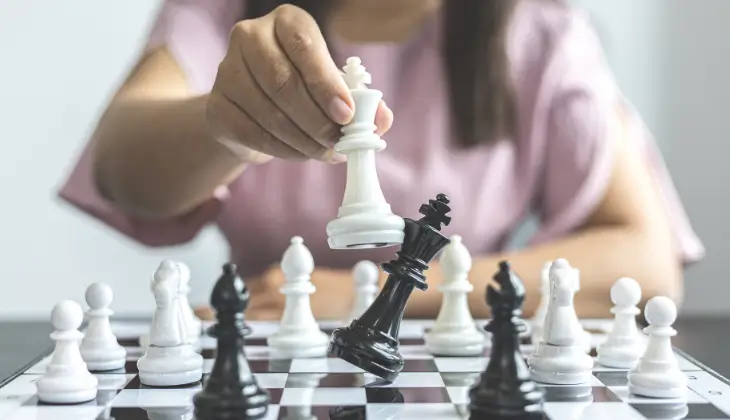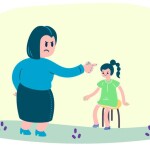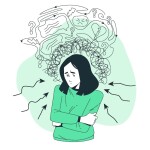Chess is more than a game; it's a battle of the mind, a dance of strategy and foresight. As Blaise Pascal once put it, "Chess is the gymnasium of the mind." This timeless game has captivated people for centuries, not just as a source of entertainment but as a powerful tool to enhance mental acuity. In this blog, we explore how chess impacts cognitive function, proving that it's a game for everyone-from children and adults to seniors. Science Behind Chess and Cognitive Development .
Chess is a brain workout: both hemispheres work simultaneously. The left hemisphere, with its logic, works out the logical moves and strategies, while the right hemisphere, which is imaginative, visualizes future moves and patterns. It has been found that playing chess exercises the prefrontal cortex of the brain, enhances executive functions such as decision-making and self-control.
A research in Neuroscience Letters pointed out that the more frequent players of chess developed cognitive flexibility-the ability to change in response to new situations and to solve problems efficiently. Chess also develops neuroplasticity-the brain's ability to reorganize itself by forming new neural connections. This makes it a powerful ally in lifelong learning and mental agility.
Benefits of Chess for Children
1. Develops Problem-Solving Skills
Children playing chess learn to analyze the board, predict opponents' moves, and devise strategies. This cultivates critical thinking and the ability to approach challenges methodically.
2. Enhances Focus and Concentration
In this digital age where distractions are everywhere, chess is a haven for focus. The game requires one's undivided attention, teaching children to concentrate for long periods of time-an ability that translates well into academics and life.
3. Improves Academic Performance
Research has shown a high correlation between chess and better performance in subjects such as mathematics and reading. Chess teaches pattern recognition and logical sequencing, skills that are useful in problem-solving in STEM subjects.
4. Develops Emotional Resilience
Losing is part of the game. Children learn to lose graciously, analyze their mistakes, and improve. It builds emotional resilience and a growth mindset, which is invaluable for navigating life.
How Chess Helps Adults Excel
1. Sharpens Decision-Making
Life is full of split-second decisions, much like chess. Through playing the game, adults practice weighing options and judging risks and making sensible decisions under pressure.
2. Improves Memory
Chess calls for memorizing complex positions, openings, and strategies. In doing so, it fosters both short-term and long-term memory.
3. Reduces Stress
Playing chess can be very meditative. The game requires a lot of concentration and, thus, helps the players forget about their daily stresses and tension, thereby bringing relief to the mind.
4. Lifelong Learning
Chess is a game that has no end. Even the grandmasters learn new strategies and openings. This helps create a culture of lifelong learning and intellectual curiosity.
Cognitive Benefits for the Elderly
1. Avoidance of Cognitive Decline
It has been found that regular mental exercise through chess is associated with less risk of Alzheimer's and dementia. The New England Journal of Medicine study reveals that playing chess or any other mind-stimulating activity can prolong the age of neurodegenerative diseases.
2. Socialization
Loneliness is one of the common issues for elderly people. The club of chess, online communities, or casual games provide opportunities for socialization with others and overcome loneliness.
3. Developing Mental Alertness
Chess maintains critical thinking and analytical skills. Most seniors who play chess report being sharper and more alert daily.
The Global Appeal of Chess for All Generations
Chess is that game of ages, genders, and geographical boundaries. Family bonding within games played at home finds an equal representation at chess clubs or online sites. And because it can be easily accessed both in the real world and digital space, chess has become popular than ever. From a child's playing at school to older folks challenging players around the globe, there is just something for everybody.
Basic Steps to Start Playing Chess
Start Small: Beginner players can use apps such as Chess.com or Lichess.org to learn the fundamentals and play against other players at different skill levels.
Solve Puzzles: Puzzles in chess games improve tactical awareness and problem-solving skills.
Set Goals: Start by learning simple strategies, then challenge yourself by participating in tournaments or advancing techniques.
Join Communities: Engage with local chess clubs or online groups and share experiences and learn from others.
Inspiring Stories and Case Studies
Magnus Carlsen:
The world champion started playing chess at the age of five. His ability to remember thousands of positions and strategies is what makes him a great example of intellectual excellence.
Chess Families:
Stories of families spending quality time with chess are many, as chess teaches children valuable lessons in addition to strengthening familial bonds.
Seniors Defy Aging:
Many seniors have picked up the game of chess during their golden years, reporting improvement in mental clarity and a zest for life.
Conclusion: Checkmate Your Limits
Chess is not only a game but also one of the best stress management strategies for personal development and cognitive advancement. It sharpens the mind, fosters resilience, and connects people across generations. Whether you are a child wanting to improve your concentration or an adult seeking agility for your mind or an elderly person looking to stay sharp, chess has something for you.
So why wait? Get a chessboard, and make your first move into unlocking the boundless potential in your mind. Your next checkmate may be that which changes your life.








